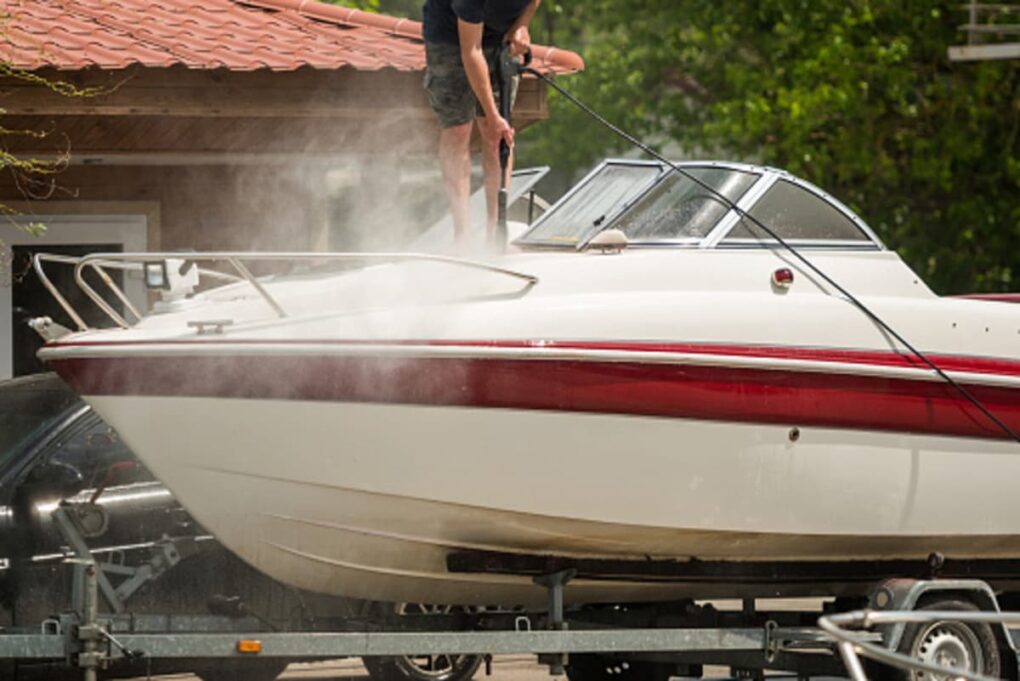
As you enjoy boating, it is good to ensure that your vessel stays in perfect shape. Regular maintenance is essential to avoid breakdowns at sea and prevent disastrous outcomes. You also don’t want problems with your battery or fuel while on water.
By ensuring regular maintenance, you learn more about your boat and can detect potential issues well in advance. As a result, you get to save time and money required for repair. Since regular maintenance prevents some problems, it is a good way to ensure your safety when boating. Here are a few tips to keep your vessel serving you perfectly:
Clean the Exterior
Regular maintenance has to start with your boat’s exterior. It is a way to prevent rust and ensure that the boat will have a longer lifespan. When you are at sea, the boat gets exposed to various factors that could damage its exterior. These include the sun, dirt, salt water, and other factors. These could be corrosive on the boat and equipment.
Therefore, ensure that the boat is well covered with wax and recommended protectants to protect the boat’s exterior from the sun, and make cleaning easier. Be sure to use fresh water to clean your boat after every trip to remove debris and saltwater build-up.
Check the Batteries
The batteries need to be in good working condition always. They are crucial because they power your boat’s motor and run all electronics on your vessel. Therefore, you must check the batteries and replace them if necessary.
To eliminate the many incidents of flat batteries reported at sea, be sure to charge your battery and check if it continues to hold the charge. Remember to keep it topped up with distilled water at all times. Check for any loose connections or corrosion. Experts estimate the battery life to be three years, but you can replace it sooner if you notice any unusual behavior.
Service the Engine
Your boat needs to stay mechanically sound, and you do this by ensuring the engine gets well serviced. Give special attention to the engine and watch out for unusual vibrations or noises. Constantly keep the fuel and oil at recommended levels, and ensure that the motor is well lubricated.
The best approach is to schedule regular servicing with a recognized marine shop to avoid taking your boat for maintenance when everyone else is taking theirs. Proper maintenance of the engine saves you from costly problems in the long run. As a boat owner, you can also equip yourself with some skills to make it easy for DIY tasks.
Check the Oil Regularly
Apart from the oil level, always take note of the oil color. You can schedule oil checks up to four or five times a year, and if you notice that the oil is turning dark, it’s time to have it changed. Besides the oil turning darker, check if its color starts getting milky. This may be one sign of a serious issue, meaning that you need to consult an expert.
If the level starts rising, you also need to check with an expert before it becomes a serious mechanical issue with costly implications. An oil change can help to lubricate the engine and prevent friction on the moving parts.
A poorly lubricated engine can make your boat consume more fuel than required (an oil change can help save fuel). It also helps get rid of debris and dirt particles that can cause corrosion and shorten your engine’s lifespan.
Check the Cooling System
Your boat’s cooling system is as important as any other mechanical part on the boat. If the cooling system starts malfunctioning, it could lead to overheating, which, in turn, destroys the motor. Therefore, ensure that the water pump steadily pumps water away from the motor.
Flushing out the anti-siphon valve will help ensure that it is not clogged. Inspect the heat exchanger end caps, and clean them regularly. If you are afraid to do it yourself, working with an expert is the best way.

Check the Boat Propeller
You want your propeller to stay efficient and perform at its optimum level on the water. If you can catch any damages to the propeller early and notice the changes in its performance, you can take action to keep it in good shape.
Check for any scratches or dents on the propeller. You can also inspect the blades and see if the boat has any bent blades that need repair. Small cracks can easily become big and cause problems when at sea. Too much wear on the blades can also become problematic.
Sometimes, the blades could look the same due to evenly wearing out. Check if the paint is still intact, and if the blades look sharpened or the edge on the leading side looks blunt, your propeller may need a replacement. Remember that the propeller can affect the engine if left unrepaired.
Upholstery Maintenance
The boat’s upholstery experiences the highest exposure to the harsh sunny conditions as you go on with your boating exploits. You do not want the colors on your boat to fade or the fabrics on your chairs to turn brittle.
One of the approaches is to use boat upholstery protectant sprays to ensure that your boat is safe from excess UV light. Also, clean the seats and keep them covered when they are not in use.
Of course, you don’t want mold forming on your boat seats, so ensure they are always dry. When choosing a cleaning product, be careful not to use a solution that will cause fading or even lead to wear and tear.
Bottom Line
If you are a DIY person, you can practically handle some of the maintenance tasks mentioned earlier. However, if you are not an expert, it is always important to tell the difference between situations you can handle and when you need the services of a technician. A professional mechanic can always address your boat’s problem, identify other issues, and even advise you on how to prevent them in the future.